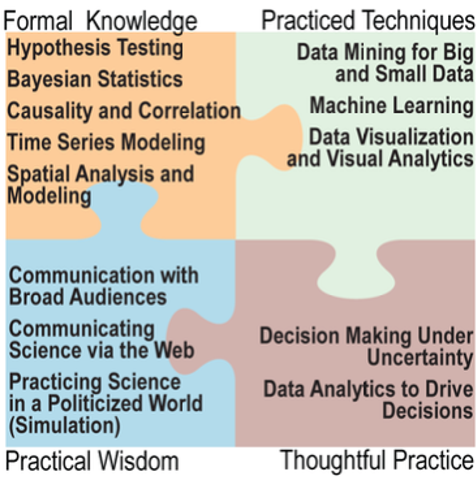Course Elements (MCEs)

To be an effective Data Professional one needs to be cognizant of and have exposure to four Integrative Skill Areas (ISAs) on which our MCE structure is based. Formal Knowledge includes foundational skills in probability, statistics, and modeling upon which data science methods and tools are based. Practiced Techniques include modern innovations and tools currently used in practice. Practical Wisdom includes communication skills and the ethics of using and protecting data privacy for effective decision making. Thoughtful Practice involves development and implementation of decision frameworks that leverage data-informed insight. These four skill areas are woven into this program and are essential components of MCEs. While not every student becomes an expert in each core competency of all four ISAs, a Data Professional should be cognizant of each and take at least one MCE from each skill area. These MCEs are also be available to a broader population of students beyond D3M@Tufts students, are adaptable for use by other institutions, and are sustainable beyond the life-span of this program through the DISC and participating departments.